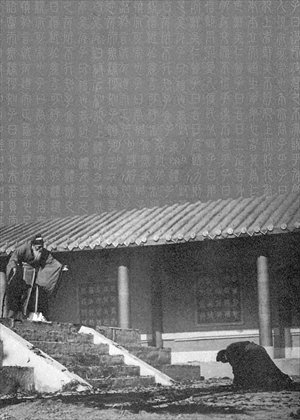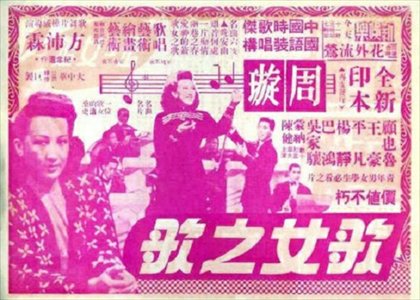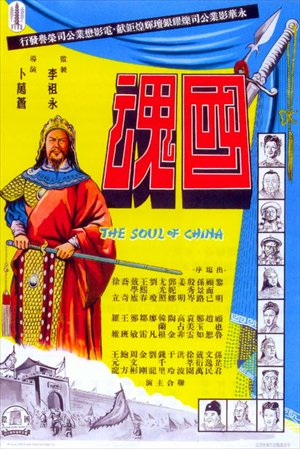Golden oldies
Made during one of the most chaotic periods in China's history, Confucius, directed by "film poet" Fei Mu (1906-1951), is a classic treasure of Chinese cinema. However, after its release in 1940, it was thought to be lost until it was donated anonymously to the Hong Kong Film Archive in 2001. Seventy-three years after it was first screened in Shanghai, Confucius has returned to the city where it was made. The biopic is one of five restored classics from the late 1930s and 40s, when China was ravaged by war, being screened this week as part of the Confucius Returns to Shanghai event at the newly opened Shanghai Film Museum.
The film tells the story of Confucius' later years as he suffered through numerous hardships. Living during a time of war, the philosopher is depicted as never losing his pride and dignity, even after losing his students and loved ones.

A poster of Confucius Photos: Courtesy of Shanghai Film Museum
Exquisitely shot, Confucius features traditional Chinese aesthetics characteristic of Fei's poetic style. Unlike his most famous masterpiece Spring in a Small Town (1948), Confucius is deeply philosophical and has a heavy sense of history.
"Confucius stood out in Shanghai cinemas at that time. Although it was only screened for about 20 days, it was well received by audiences," said Zhang Wei, a researcher at Shanghai Library and an expert in Shanghai film history. "Films often express deep emotions. They say what people want to express through the mouths of the characters," Zhang said. "Lines like 'Take responsibility and save our country' were no doubt how Chinese people really felt at that time."
At the time, "many films emerged only to make money," Zhang observed of the period. However, Jin Xinmin, a businessman, established Minghua Film Company to make films for films' sake and he invited Fei to join him.
Confucius took a year to make and cost a whopping 160,000 silver dollars. "The budget of a film at the time ranged from 5,000 to 20,000 silver dollars," Zhang said. "If not for their love of art, Jin and Fei would not have made such a classic film."
"My father always believed that films can make people be better," Fei Mingyi, the daughter of Fei Mu recalled. "He spent his whole life pursuing the best art and film. It is his spirit that has encouraged me for years."
Besides Confucius, there are four other classic films on show.

A poster of Song of a Songstress Photos: Courtesy of Shanghai Film Museum
The Soul of China, directed by Bu Wancang (1903-1974), had a huge impact when it was released in 1948. Featuring an all-star cast, the film tells the story of the Song Dynasty (960-1279) patriotic general Wen Tianxiang, played by Liu Qiong (1919-2002), who delivered his most famous speech in this film.
Another of Bu's films, Diao Chan (1939), is a lavish costume drama about one of ancient China's legendary beauties. The film took two years to complete because of the Japanese bombing of Shanghai. The story of the eponymous heroine devoting herself to save her country was a hit with audiences.
The other two films being screened are Song of a Songstress (1948) and Orioles Banished from the Flowers (1948), both love stories directed by Fang Peilin (1908-1948) and starring Zhou Xuan (1920-1957), a famous singer and actress known as "Golden Voice."

A poster of The Soul of China Photos: Courtesy of Shanghai Film Museum
Date: Until August 18
Venue: Shanghai Film Museum 上海电影博物馆
Address: 595 Caoxi Road North 漕溪北路595号
Tickets: 60 yuan
Call 6426-8666 for details